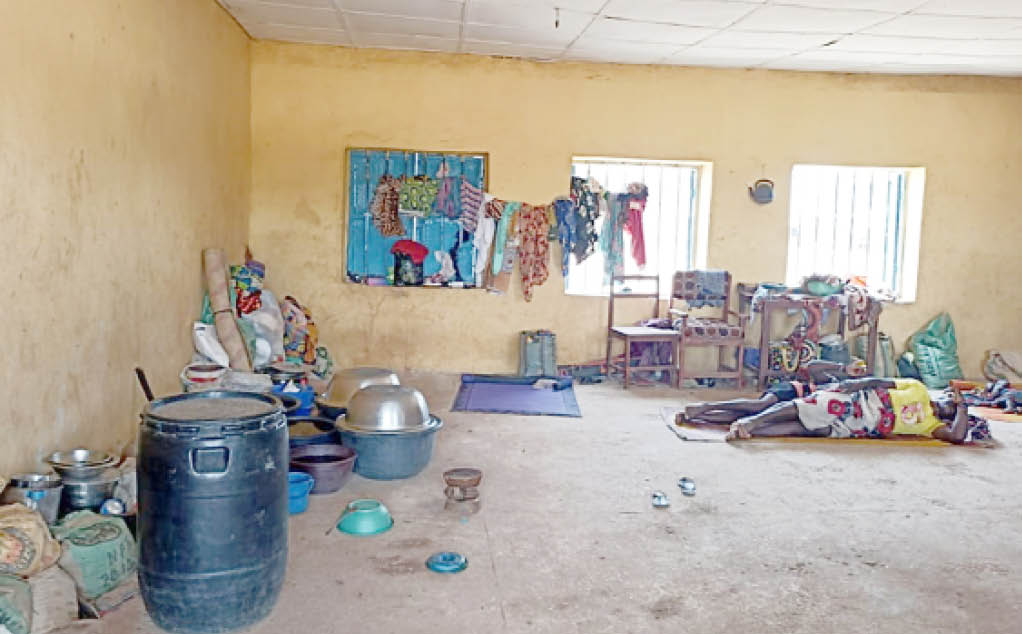Four wives of an Internally Displaced Person (IDP) at a camp in Borno put to bed on the same day.
Borno state Commissioner of Women Affairs, Hajiya Zuwaira Gambo, disclosed this while commenting on the high rate of pregnancy and procreation in Boko Haram Rehabilitation camps.
The commissioner, who appeared before the Special Independent Investigative Panel on Human Rights Violations in Counter-Insurgency Operations in the North East (SIIP North-East), said some women usually get pregnant four months after delivery.
She said the ministry had to take care of the four women who put to bed on the same day.
- NYSC DG to corps members: Avoid night parties, drug abuse
- Social Media and the 2023 election campaigns
She noted that such pregnancies consequently diminish the ability of such women to properly breastfeed two babies whose age gap is negligible, “Given that the difference between their dates of birth is negligible”.
The panel, chaired by Justice Abdu Aboki, a retired Supreme Court Judge, with the mandate to investigate Reuters report alleging forced abortion on over 10,000 pregnant women by the Nigerian military, asked the commissioner of whether such abortion was conducted.
“Reuters’ report came to me as a surprise, the Ministry or any of its agencies has not recorded any case of abortion or massacre of children as alleged by Reuters and that women and children in the said camps are given the basic care and support by the state government” she said.
On the possibility of the military or any person administering drugs like oxytocin to abort pregnancies of women and girls in the rehabilitation camps, she said it is not true because according to her, soldiers are not allowed in these camps apart from guarding the entrance and the perimeter of the camps.
“The women are emotionally attached to their husbands and the allegation that soldiers or other public servants could abort pregnancies of their beloved wives is unimaginable”, the Commissioner added.
According to her, the men at some point complained to the representatives of the state in the camps that they would not want their wives to be attended to by men, so she wondered how such “jealous men” could allow anyone to touch their wives let alone aborting their pregnancies.
Asked by the panel Secretary, Mr Hilary Ogbonna, if the rehabilitation camps have witnessed casualties resulting from secret abortions, she answered in the negative, adding that some casualties involving children in the camps were usually as a result of early childhood diseases like measles, diarrhea, etc.
The panel, set up by the National Human Rights Commission, began an independent investigation into the matter last Sunday. The hearing will last for a week.
In December last year, Reuters published a report that the Nigerian military had operated a secretive and illegal abortion programme, terminating at least 10,000 pregnancies, among women and girls since 2013.

 Join Daily Trust WhatsApp Community For Quick Access To News and Happenings Around You.
Join Daily Trust WhatsApp Community For Quick Access To News and Happenings Around You.


